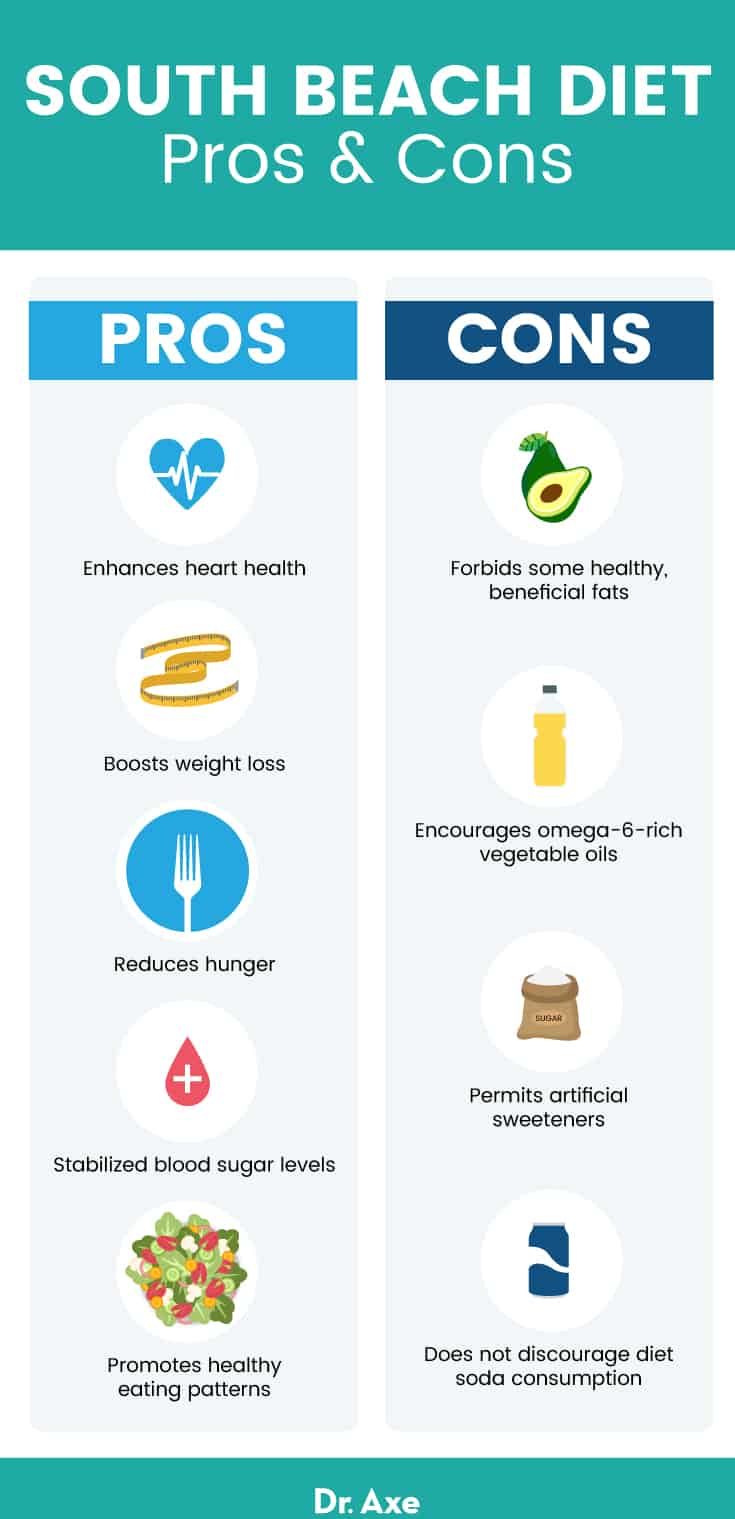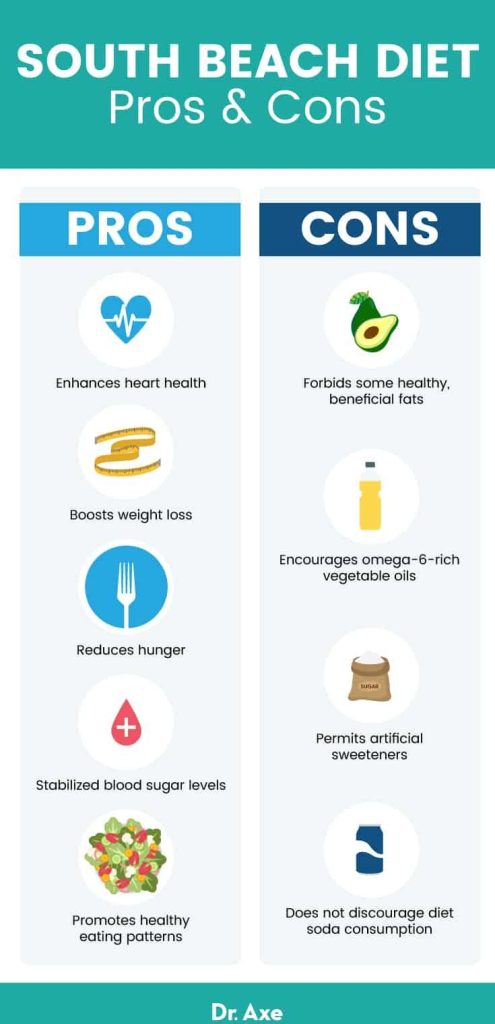If you’ve ever considered trying a new diet, chances are you’ve come across the South Beach Diet. But is the South Beach Diet healthy? That’s the burning question we’re going to dive into today. Whether you’re a health-conscious individual looking to shed a few pounds or just curious about the latest diet trends, this article will provide you with all the information you need to make an informed decision.
Now, before we get into the nitty-gritty of the South Beach Diet, let me assure you that I’ve done my research and I’m here to give you the scoop. We’ll explore the ins and outs of this popular diet plan, discussing its potential benefits and drawbacks. So grab a cup of coffee, sit back, and get ready to learn everything you need to know about the South Beach Diet and its impact on your health. Let’s get started!
The South Beach Diet is generally considered to be a healthy eating plan. It focuses on consuming lean proteins, healthy fats, and low-glycemic carbohydrates. The diet encourages eating nutrient-dense foods and limiting processed foods, added sugars, and refined grains. It promotes weight loss, improved heart health, and better blood sugar control. However, it’s important to consult with a healthcare professional before starting any diet to ensure it aligns with your specific needs and goals.

Is the South Beach Diet Healthy?
The South Beach Diet is a popular weight loss program that has gained a lot of attention in recent years. It was developed by cardiologist Dr. Arthur Agatston and emphasizes a low-carb, high-protein approach to eating. The diet focuses on consuming lean proteins, healthy fats, and low-glycemic carbohydrates while avoiding refined sugars and processed foods. But is the South Beach Diet really a healthy way to lose weight and improve your overall health?
The Science Behind the South Beach Diet
The South Beach Diet is based on the science of how carbohydrates affect blood sugar levels. It divides carbohydrates into three categories: good carbs, bad carbs, and limited carbs. Good carbs are low in sugar and high in fiber, such as whole grains, vegetables, and fruits. Bad carbs are high in sugar and low in fiber, such as white bread, sugary snacks, and sodas. Limited carbs are those that fall in between, such as whole grain bread and pasta.
The diet aims to stabilize blood sugar levels by limiting the intake of bad carbs and increasing the intake of good carbs and lean proteins. This can help control cravings, reduce hunger, and promote weight loss. The South Beach Diet also encourages the consumption of healthy fats, such as olive oil and avocados, which provide essential nutrients and help keep you feeling satisfied.
The Benefits of the South Beach Diet
One of the main benefits of the South Beach Diet is its focus on whole, unprocessed foods. By cutting out refined sugars and processed foods, you’re more likely to consume nutrient-dense foods that provide essential vitamins, minerals, and antioxidants. This can lead to improved overall health and a reduced risk of chronic diseases, such as heart disease and diabetes.
Another benefit of the South Beach Diet is its emphasis on lean proteins. Protein is an essential nutrient that helps repair and build tissues, supports immune function, and keeps you feeling full and satisfied. By including lean proteins in your meals, you can maintain muscle mass while losing weight, which is important for long-term weight management.
Additionally, the South Beach Diet can help stabilize blood sugar levels and improve insulin sensitivity. This can be particularly beneficial for individuals with diabetes or those at risk of developing diabetes. By controlling blood sugar levels, you can reduce the risk of complications associated with diabetes and improve overall health.
The Potential Drawbacks of the South Beach Diet
While the South Beach Diet has its benefits, it’s important to consider some potential drawbacks as well. The diet restricts certain food groups, such as grains and fruits, during the initial phase, which may make it challenging to meet all your nutrient needs. It’s important to ensure you’re getting enough vitamins, minerals, and fiber from other sources to support optimal health.
Another potential drawback of the South Beach Diet is its focus on low-carb eating. While reducing refined sugars and processed foods is generally beneficial, cutting out all carbohydrates can lead to nutrient deficiencies and low energy levels, especially if not properly balanced with other macronutrients. It’s important to listen to your body and make adjustments to meet your individual needs.
Lastly, the South Beach Diet may not be suitable for everyone. If you have certain medical conditions, such as kidney disease or liver disease, or if you’re pregnant or breastfeeding, it’s important to consult with a healthcare professional before starting any new diet plan.
In conclusion, the South Beach Diet can be a healthy and effective way to lose weight and improve overall health when followed properly. It emphasizes whole, unprocessed foods, lean proteins, and healthy fats while limiting refined sugars and processed foods. However, it’s important to listen to your body, meet your nutrient needs, and consult with a healthcare professional before making any significant changes to your diet.
Key Takeaways: Is the South Beach Diet Healthy?
- The South Beach Diet is a popular low-carb diet that focuses on lean proteins, healthy fats, and good carbs.
- It promotes weight loss and helps control blood sugar levels.
- The diet encourages the consumption of whole foods and limits processed foods.
- It may be beneficial for those with certain health conditions like diabetes or heart disease.
- However, it’s important to consult with a healthcare professional before starting any diet plan.
Frequently Asked Questions
What is the South Beach Diet?
The South Beach Diet is a popular weight loss program that was developed by cardiologist Dr. Arthur Agatston. It is based on the principle of consuming the right fats and carbohydrates and avoiding the bad ones to achieve weight loss and improve overall health. The diet is divided into three phases, each with its own guidelines and restrictions.
The first phase is the most restrictive, focusing on eliminating refined carbs and sugars from the diet. The second phase allows for the gradual reintroduction of some carbs, while the third phase is a maintenance phase where you can enjoy a wider variety of foods while still following the principles of the diet.
Does the South Beach Diet promote weight loss?
Yes, the South Beach Diet is designed to promote weight loss. By following its principles, such as consuming lean proteins, healthy fats, and low-glycemic index carbohydrates, individuals are likely to experience weight loss. The initial phase, which restricts certain foods, can lead to rapid weight loss, but the long-term success of the diet depends on the individual’s ability to adhere to the principles in the maintenance phase.
It is important to note that weight loss results may vary from person to person, and factors such as overall health, activity level, and adherence to the diet can influence outcomes.
Is the South Beach Diet healthy?
The South Beach Diet can be a healthy approach to weight loss and overall wellness when followed correctly. It emphasizes consuming lean proteins, healthy fats, and low-glycemic index carbohydrates, which can promote stable blood sugar levels and provide essential nutrients. The diet also encourages the consumption of fruits, vegetables, and whole grains, which are key components of a balanced diet.
However, it is important to consult with a healthcare professional before starting any diet, especially if you have any underlying health conditions or dietary restrictions. They can help determine if the South Beach Diet is a suitable option for you and provide guidance on how to personalize it to meet your specific needs.
Are there any potential drawbacks to the South Beach Diet?
While the South Beach Diet can be a healthy approach to weight loss, there are potential drawbacks to consider. The initial phase of the diet can be quite restrictive, which may be challenging for some individuals to adhere to in the long term. It may also require planning and preparation to ensure a variety of nutritious foods are included in the diet.
Additionally, the diet may not be suitable for everyone. Individuals with certain medical conditions, such as kidney disease or diabetes, may need to modify the diet to meet their specific needs. It is always best to consult with a healthcare professional or registered dietitian before starting any new diet or making significant changes to your eating habits.
Can the South Beach Diet be sustained long-term?
The South Beach Diet can be sustained long-term if individuals are able to incorporate its principles into their lifestyle. The third phase of the diet, known as the maintenance phase, allows for a wider variety of foods and provides guidance on portion sizes and making healthy choices. By adopting these principles as a long-term lifestyle approach, individuals can continue to enjoy the benefits of the South Beach Diet while maintaining a healthy weight.
It is important to note that the long-term success of any diet depends on individual adherence and making sustainable lifestyle changes. It may be helpful to work with a healthcare professional or registered dietitian to develop a personalized plan that fits your specific needs and goals.

South Beach Diet | Morning Blend
Final Summary: Is the South Beach Diet Healthy?
After delving into the details of the South Beach Diet, it’s clear that this popular eating plan can indeed be a healthy choice for individuals looking to improve their overall well-being. With its emphasis on lean proteins, healthy fats, and low-glycemic carbohydrates, the South Beach Diet offers a balanced approach to nutrition that can support weight loss and promote heart health. By incorporating plenty of vegetables, whole grains, and lean sources of protein, followers of this diet can enjoy a wide variety of delicious and satisfying meals while still achieving their health goals.
Furthermore, the South Beach Diet places particular importance on education and long-term lifestyle changes rather than short-term fixes. This approach encourages individuals to develop a better understanding of their dietary choices and make sustainable changes that will benefit them in the long run. While it may not be suitable for everyone, the South Beach Diet offers a flexible and customizable framework that can be adapted to meet individual preferences and needs.
Remember, it’s always important to consult with a healthcare professional or registered dietitian before starting any new diet regimen to ensure it aligns with your specific health requirements and goals. With the right guidance and a commitment to making healthy choices, the South Beach Diet can be a valuable tool on your journey to a healthier lifestyle.


